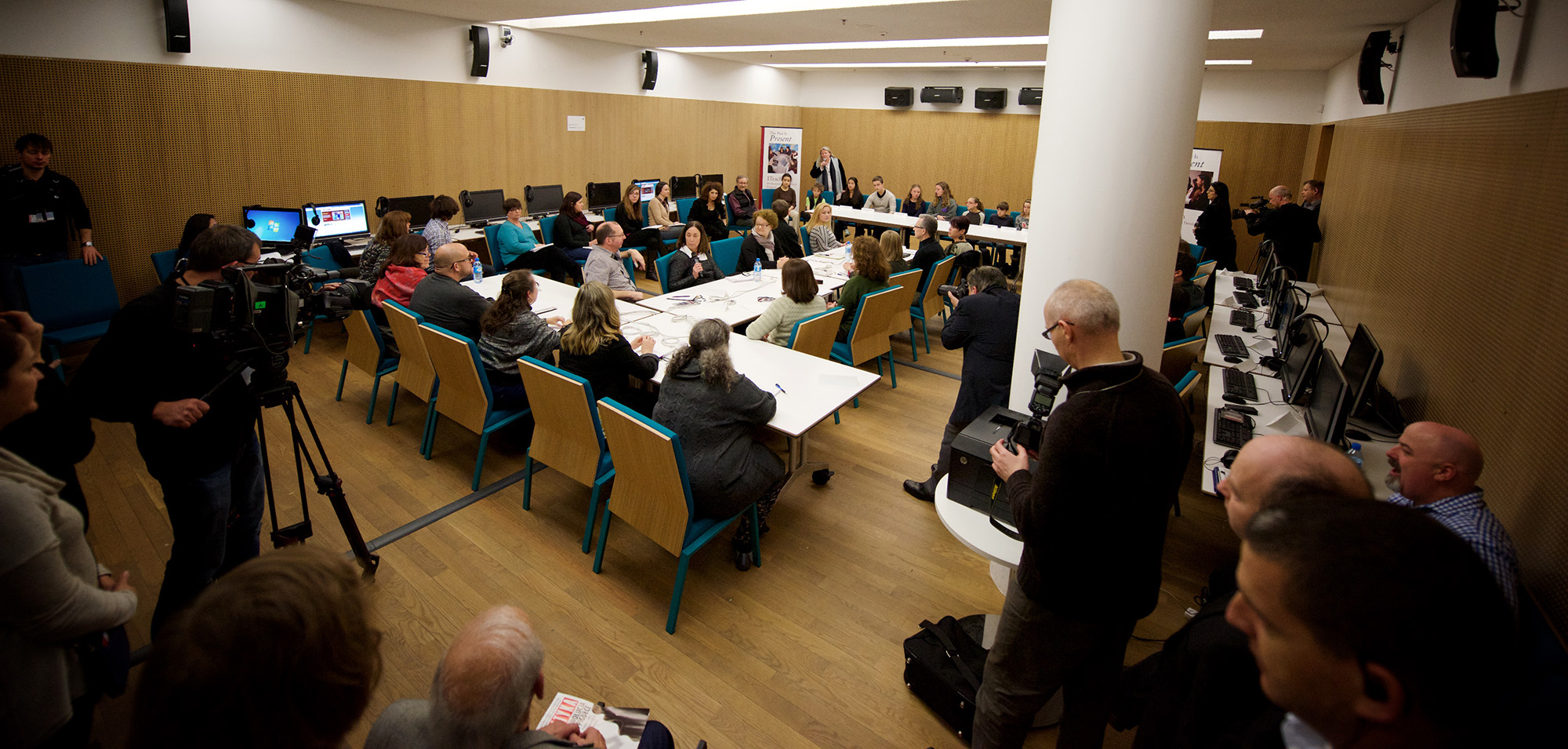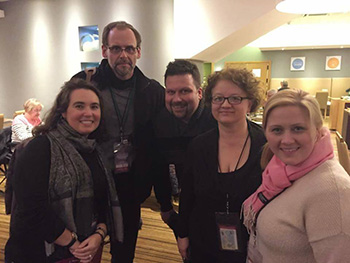“Past is Present” in Action: Ingrid Alexovics

This year-long series will catch up with teachers and staff who participated in the Auschwitz: The Past is Present professional development program led by USC Shoah Foundation and Discovery Education to commemorate the 70th anniversary of the liberation of Auschwitz. The program brought 25 teachers from around the world to Warsaw and Krakow from Jan. 23-28, 2015, where they toured museums and historical sites, learned how to incorporate testimony into their teaching, and attended the official commemoration at Auschwitz-Birkenau State Museum. In “Past is Present” in Action, the participants reflect on the program and share how it has influenced their work.
 From left: Teachers Laura Pritchard Dobrin, Steven Howell, Miljenko Hajdarovic, Ingrid Alexovics and Jeanne Woods in Poland
From left: Teachers Laura Pritchard Dobrin, Steven Howell, Miljenko Hajdarovic, Ingrid Alexovics and Jeanne Woods in PolandAlexovics is the head of the Foreign Language Department at Radnóti Miklós Economic Secondary School in Pécs, Hungary. She is a graduate of USC Shoah Foundation’s Teaching with Testimony in the 21st Century professional development program.
Almost nine months after the trip to Poland, Alexovics said that what continues to stand out in her mind is the atmosphere of professional partnership that was cultivated between the educators and staff. She also remembers a conversation she had with a Hungarian survivor at the reception the night before the commemoration.
“Those were such heart-warming moments to talk to someone about a sad past but most of all about her present profession and life in Israel,” she said.
Alexovics said her students were well aware of the importance of her trip and insisted on hearing about the experience.
“They were all very interested and eager to see the pictures and listen to my memories about the days I spent in Poland,” she said.
Alexovics and her students are currently working on constructing an IWalk about the city of Pécs. The IWalk will enable local high school students to view testimony clips from the Visual History Archive on mobile devices in the exact locations in Pécs that survivors talk about in their testimonies. The IWalk will also include other sites that are significant to the Pécs Jewish community.
She and the other Past is Present teachers still keep in touch and talk about their work, which has been an unexpected benefit of the program, Alexovics said. They also discuss current events like the refugee crisis in Europe.
Participating in Auschwitz: The Past is Present helped put her work in a wider perspective, and she was proud that other educators from around the world were interested in what she does at her own school.
It also, unfortunately, showed her that the conditions that led to the Holocaust are not firmly in the past.
“The trip still makes me think about how dictatorships worked in Europe and to be honest, today’s political situation sometimes reminds me of the era,” Alexovics said. “This I did not expect and am not happy about at all.”